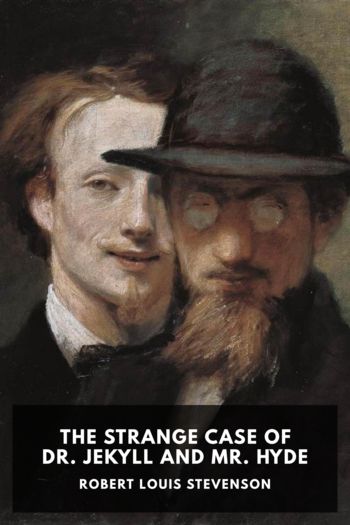Catriona by Robert Louis Stevenson (read with me .TXT) 📕

- Author: Robert Louis Stevenson
Book online «Catriona by Robert Louis Stevenson (read with me .TXT) 📕». Author Robert Louis Stevenson
The first that I opened was naturally Alan’s; and what more natural than that I should comment on his design to visit me? but I observed James to sit up with an air of immediate attention.
“Is that not Alan Breck that was suspected of the Appin accident?” he inquired.
I told him, “Ay,” it was the same; and he withheld me some time from my other letters, asking of our acquaintance, of Alan’s manner of life in France, of which I knew very little, and further of his visit as now proposed.
“All we forfeited folk hang a little together,” he explained, “and besides I know the gentleman: and though his descent is not the thing, and indeed he has no true right to use the name of Stewart, he was very much admired in the day of Drummossie. He did there like a soldier; if some that need not be named had done as well, the upshot need not have been so melancholy to remember. There were two that did their best that day, and it makes a bond between the pair of us,” says he.
I could scarce refrain from shooting out my tongue at him, and could almost have wished that Alan had been there to have inquired a little further into that mention of his birth. Though, they tell me, the same was indeed not wholly regular.
Meanwhile, I had opened Miss Grant’s, and could not withhold an exclamation.
“Catriona,” I cried, forgetting, the first time since her father was arrived, to address her by a handle, “I am come into my kingdom fairly, I am the laird of Shaws indeed—my uncle is dead at last.”
She clapped her hands together leaping from her seat. The next moment it must have come over both of us at once what little cause of joy was left to either, and we stood opposite, staring on each other sadly.
But James showed himself a ready hypocrite. “My daughter,” says he, “is this how my cousin learned you to behave? Mr. David has lost a near friend, and we should first condole with him on his bereavement.”
“Troth, sir,” said I, turning to him in a kind of anger, “I can make no such faces. His death is as blythe news as ever I got.”
“It’s a good soldier’s philosophy,” says James. “ ’Tis the way of flesh, we must all go, all go. And if the gentleman was so far from your favour, why, very well! But we may at least congratulate you on your accession to your estates.”
“Nor can I say that either,” I replied, with the same heat. “It is a good estate; what matters that to a lone man that has enough already? I had a good revenue before in my frugality; and but for the man’s death—which gratifies me, shame to me that must confess it!—I see not how anyone is to be bettered by this change.”
“Come, come,” said he, “you are more affected than you let on, or you would never make yourself out so lonely. Here are three letters; that means three that wish you well; and I could name two more, here in this very chamber. I have known you not so very long, but Catriona, when we are alone, is never done with the singing of your praises.”
She looked up at him, a little wild at that; and he slid off at once into another matter, the extent of my estate, which (during the most of the dinner time) he continued to dwell upon with interest. But it was to no purpose he dissembled; he had touched the matter with too gross a hand: and I knew what to expect. Dinner was scarce ate when he plainly discovered his designs. He reminded Catriona of an errand, and bid her attend to it. “I do not see you should be gone beyond the hour,” he added, “and friend David will be good enough to bear me company till you return.” She made haste to obey him without words. I do not know if she understood, I believe not; but I was completely satisfied, and sat strengthening my mind for what should follow.
The door had scarce closed behind her departure, when the man leaned back in his chair and addressed me with a good affectation of easiness. Only the one thing betrayed him and that was his face; which suddenly shone all over with fine points of sweat.
“I am rather glad to have a word alone with you,” says he, “because in our first interview there were some expressions you misapprehended and I have long meant to set you right upon. My daughter stands beyond doubt. So do you, and I would make that good with my sword against all gainsayers. But, my dear David, this world is a censorious place—as who should know it better than myself, who have lived ever since the days of my late departed father, God sain him! in a perfect spate of calumnies? We have to face to that; you and me have to consider of that; we have to consider of that.” And he wagged his head like a minister in a pulpit.
“To what effect, Mr. Drummond?” said I. “I would be obliged to you if you would approach your point.”
“Ay, ay,” says he, laughing, “like your character indeed! and what I most admire in it. But the point, my worthy fellow, is sometimes in a kittle bit.” He filled a glass of wine. “Though between you and me, that are such fast friends, it need not bother





Comments (0)